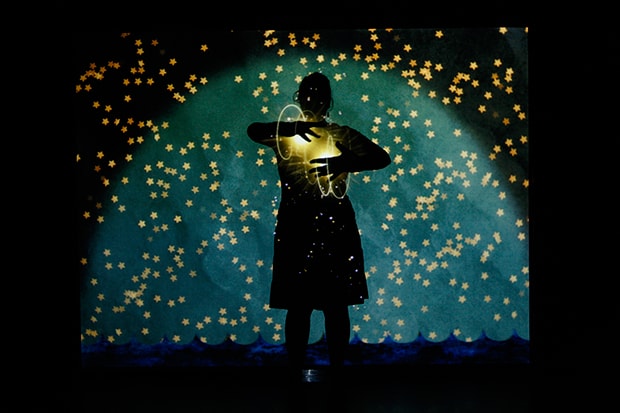This issue of The Scholar & Feminist Online represents recovery from the effects of the COVID pandemic. In spring 2020 when Barnard, along with most colleges, universities, and schools, abruptly shut down, BCRW faced real questions about how to carry on its work. Within relatively short order, BCRW was able to move all of its programming online and with this practice the Center expanded its audience in important ways. But in those early days and weeks decisions had to be quick and there was still hope for swift return to in-person events. Looking back, it remains challenging to conceptualize that in-person programming didn’t resume on campus for three full semesters.
One of the most important events scheduled for that first spring, just a few days after the shutdown, was a salon in honor of the publication of Dána-Ain Davis’s important book, Reproductive Injustice: Racism, Pregnancy, and Premature Birth (New York University Press, 2019). It was clear at the time that the book, which crystallizes the concept of “obstetric racism” through powerful ethnographic work and convincing storytelling, would be important. And, indeed, the book would go on to win the Basker prize in medical anthropology and its major insights would be featured in the New York Times. 1 So the salon was intended to highlight its many contributions and allow for conversation between Davis and activist and academic experts in the field. Given the shutdown and the fact that the potential of online events was still in development, this issue of S&F Online was undertaken to ensure that these important insights and stories would not be obscured by the pandemic but would continue to be topics of discussion.
Not surprisingly, after the initial shock of the pandemic, it was somewhat more challenging than the turn to online programming for the team at BCRW to get the publication of S&F Online back up and fully running. The strength, and in this case the weakness, of the journal is its multi-disciplinary, multi-media, scholar and activist hybridity, making it difficult to pull together any single issue, even one focused on a specific book like Reproductive Injustice. Thus, we at BCRW are very proud to be able to bring you this issue that includes important conversations with Davis and expands the discussion of the realities of reproductive injustice while also offering visions and descriptions of practice by those seeking reproductive justice. In addition to a valuable interview between Davis and anthropologist Virginia Dominguez, the first section of the issue includes both the video and a transcript of the conversation with Davis and Sarah Haley at the BCRW McIntyre Lecture in Fall 2022. This section includes further reflections from those who have used the book in the practice of teaching (Ugo F. Edu) and research (Frances Howell). Each of these contributions demonstrates the ongoing effects of a powerful piece of writing like Reproductive Injustice. The second section of this issue focuses on practitioners in Kansas City and Baltimore who have developed practices of care by and for Black communities engaged with reproduction, with essay and interview contributions from Devika Maulik, Hakima Payne, Miriam Neptune, Stéphanie Etienne, and Tanay Harris. And, finally, the third section offers scholarly and artistic visions of what care, healing, and justice might become. Nessette Falu’s lyrical essay about the inspiration of art that honors Black communal reproductive care and the moving photographs of Kelly Marshall are complemented by the video of Cara Page’s beautiful performance/ritual of the power to be found in Black communal healing from the long history of medical racism.
For us, it seems impossible to hear these conversations, read these essays, and engage with this art and not be inspired by the ways in which a passion to end racism, including obstetric racism, heal from injustice, and create justice can expand in ways that create multiple worlds of possibility. The COVID pandemic has had the potential to interrupt our hopes for building out the world of justice inspired by Davis’s book. And since we began working on this issue the landscape of reproductive injustice has expanded even further with the US Supreme Court’s Dobbs decision that refused to recognize any constitutional right to bodily autonomy with regard to reproduction. As Michele Goodwin pointed out in the New York Times, this decision is steeped in the long history of racism, including reproductive racism in the US. 2 It ignores the 14th Amendment’s recognition of the injustice of forced birth legalized by enslavement and that amendment’s establishment of a right to reproductive freedom for all people, including those who had been enslaved.
In conjunction with the publication of this issue, we will be hosting a symposium on these renewed horizons of racism and reproductive injustice featuring Davis, longtime reproductive justice organization SisterSong, and esteemed scholar Dorothy Roberts, among others, to discuss how movements for abolition are also always movements for reproductive justice. The event will be held in-person at Barnard College on October 20 and is open to all. You will be able to view video of the entire symposium on BCRW YouTube page.
The ability to bring forward this issue of The Scholar & Feminist Online and to continue these broader conversations has made us at BCRW grateful to each of the contributors while renewing our hope that even in the face of centuries of racist injustice and a global pandemic, small efforts to care and create, to build and repair mean that recovery, healing, and justice are possible.
WORKS CITED
Davis, Dána-Ain. Reproductive Injustice: Racism, Pregnancy, and Premature Birth. New York: NYU Press, 2019.
Goodwin, Michele. “No, Justice Alito, Reproductive Justice Is in the Constitution.” New York Times (June 26, 2022): https://www.nytimes.com/2022/06/26/opinion/justice-alito-reproductive-justice-constitution-abortion.html.
Villarosa, Linda. “Why America’s Black Mothers and Babies are in a Life-or-Death Crisis.” New York Times (April 11, 2018): https://www.nytimes.com/2018/04/11/magazine/black-mothers-babies-death-maternal-mortality.html.
- Linda Villarosa, “Why America’s Black Mothers and Babies are in a Life-or-Death Crisis,” New York Times (April 11, 2018), https://www.nytimes.com/2018/04/11/magazine/black-mothers-babies-death-maternal-mortality.html[↑]
- Michele Goodwin, “No, Justice Alito, Reproductive Justice Is in the Constitution,” New York Times (June 26, 2022), https://www.nytimes.com/2022/06/26/opinion/justice-alito-reproductive-justice-constitution-abortion.html[↑]



